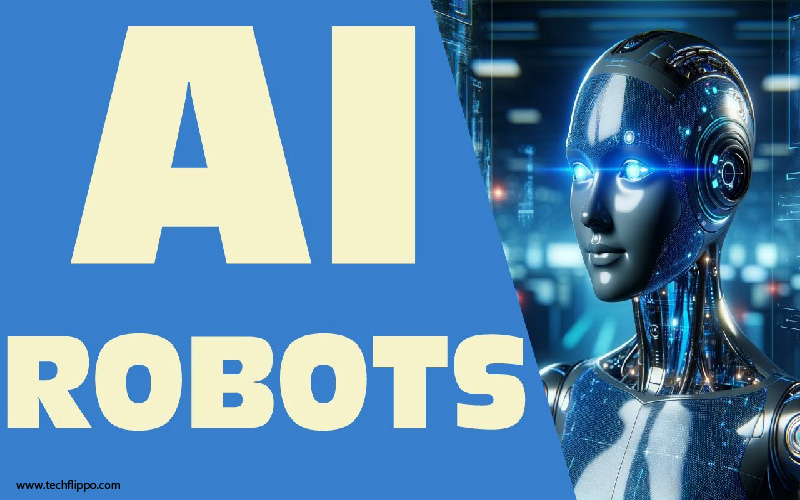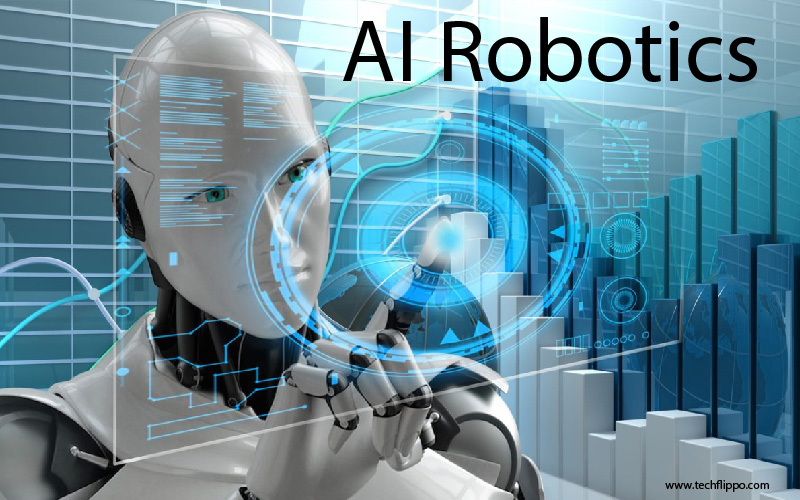The Rise of Artificial Intelligence Robotics
Welcome to the thrilling world of Artificial Intelligence Robotics! Imagine a future where machines not only perform tasks but also think, learn, and adapt like humans. This groundbreaking technology is revolutionizing industries and reshaping the way we interact with automation. Join us on an exciting journey as we explore the rise of AI Robotics and its impact on society.

The Evolution of Robotics and AI
As we delve into the fascinating world of Artificial Intelligence Robotics, it’s crucial to understand the evolution that has brought us to where we are today. The journey of robotics and AI began with simple mechanical devices designed to automate repetitive tasks. Over time, advancements in technology and computing power have propelled these innovations to new heights.
The integration of artificial intelligence has revolutionized robotics, enabling machines to learn from data, adapt to new situations, and make decisions independently. This convergence has paved the way for robots that can perform complex functions with precision and efficiency.
From industrial manufacturing to healthcare and even space exploration, AI robotics is making significant strides in various industries. Companies are leveraging this technology to enhance productivity, improve safety standards, and drive innovation across sectors.
As we witness the continuous evolution of robotics and AI technologies, one thing is certain – the future holds endless possibilities for intelligent machines capable of transforming our lives in ways we never imagined.
Advantages and Disadvantages of AI Robotics
Artificial Intelligence Robotics comes with a host of advantages that have revolutionized various industries. AI robots can perform tasks with precision and efficiency, leading to increased productivity and cost savings for businesses. They can also handle dangerous or repetitive tasks that are risky for humans, enhancing workplace safety.
On the flip side, concerns arise about potential job displacement as AI robots automate more roles traditionally held by humans. The ethical implications of relying on machines to make decisions that impact people’s lives raise questions about accountability and transparency. Additionally, there are fears surrounding data privacy and security breaches when integrating AI robotics into different systems.
Despite these challenges, the rapid advancements in AI robotics continue to push boundaries and open up new possibilities across sectors. As technology evolves, striking a balance between leveraging the benefits while addressing the drawbacks remains crucial for shaping a future where AI robotics coexist harmoniously with human society.
Applications of AI Robotics in Different Industries
From manufacturing to healthcare, AI robotics is revolutionizing various industries. In manufacturing, robots equipped with AI algorithms streamline production processes, increasing efficiency and reducing errors. These robots can perform tasks like assembly, welding, and quality control with precision.
In the healthcare sector, AI robotics assist in surgeries by providing real-time data analysis and precise movements during procedures. They also help in patient care by monitoring vital signs and assisting with physical therapy exercises.
Retail has seen a surge in AI robotics usage for inventory management and customer service. Robots navigate through stores to check stock levels or guide customers to products they are looking for.
Even agriculture benefits from AI robotics through autonomous tractors that analyze soil conditions and plant seeds at optimal depths. This technology ensures higher crop yields while minimizing environmental impact.

Ethical Concerns Surrounding AI Robotics
As artificial intelligence robotics continues to advance, ethical concerns have become a focal point of discussion. One major issue is the potential for AI robots to replace human jobs, leading to unemployment and societal disruption. Moreover, there are worries about the misuse of AI technology for malicious purposes such as cyber warfare or surveillance.
Another ethical dilemma revolves around the decision-making capabilities of autonomous AI systems. Questions arise on who should be held accountable if an AI robot makes a harmful decision autonomously. Additionally, concerns regarding data privacy and security come into play with the vast amount of personal information that AI systems collect and analyze.
Furthermore, biases in AI algorithms pose a significant ethical challenge as they can perpetuate discrimination based on race, gender, or other factors. The lack of transparency in how these algorithms operate raises questions about fairness and accountability in AI decision-making processes.
Predictions for the Future of AI Robotics
As we look ahead to the future of AI robotics, it’s clear that we are on the cusp of groundbreaking advancements. With ongoing research and development in artificial intelligence, robots are expected to become even more sophisticated and capable.
One prediction is that AI robotics will revolutionize industries such as healthcare, manufacturing, and transportation by streamlining processes and increasing efficiency. The integration of AI with robotics will lead to automation on a scale never seen before.
Moreover, the use of AI-powered robots in everyday tasks is likely to become more prevalent. From household chores to customer service interactions, these intelligent machines have the potential to significantly impact our daily lives.
With continued innovation and investment in this field, the possibilities for AI robotics seem endless. As technology continues to evolve at a rapid pace, it’s exciting to think about how these advancements will shape our future.
Conclusion
In the fast-paced world of technology, Artificial Intelligence Robotics has emerged as a revolutionary force with tremendous potential. From enhancing efficiency in industries to aiding in medical procedures and even exploring outer space, AI robotics is reshaping the way we live and work.
As we continue to witness advancements in this field, it is crucial to address ethical concerns surrounding AI robotics such as job displacement and privacy issues. By being proactive in setting guidelines and regulations, we can ensure that these technologies are used responsibly for the benefit of society.
Looking ahead, predictions suggest that AI robotics will further integrate into our daily lives, transforming various sectors like healthcare, agriculture, transportation, and more. With ongoing research and development efforts fueling innovation, the future holds endless possibilities for artificial intelligence robotics.
Embracing this technological evolution while remaining mindful of its impact on humanity will be key to harnessing the full potential of AI robotics. As we navigate this exciting journey into the future, one thing remains certain – artificial intelligence robotics will continue to shape our world in ways we have yet to imagine.